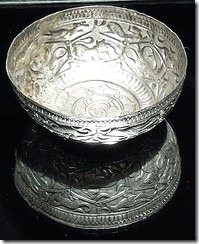 I created a new data model class to store in a Sterling NoSQL database. On the first and all subsequent attempts to save or retrieve data of this type, I received the error message at the bottom of this post. A number of other people reported similar issues. Apparently it is some type of serialization/deserialization issue. I didn’t find a suggested resolution, but on a whim, moved the AssessmentDate DateTime property from the top of the list of properties in the class to the bottom and that seemed to resolve the issue.
I created a new data model class to store in a Sterling NoSQL database. On the first and all subsequent attempts to save or retrieve data of this type, I received the error message at the bottom of this post. A number of other people reported similar issues. Apparently it is some type of serialization/deserialization issue. I didn’t find a suggested resolution, but on a whim, moved the AssessmentDate DateTime property from the top of the list of properties in the class to the bottom and that seemed to resolve the issue.
Object of type 'System.Int32' cannot be converted to type 'System.DateTime'.
at System.RuntimeType.TryChangeType(Object value, Binder binder, CultureInfo culture, Boolean needsSpecialCast)
at System.RuntimeType.CheckValue(Object value, Binder binder, CultureInfo culture, BindingFlags invokeAttr)
at System.Reflection.MethodBase.CheckArguments(Object[] parameters, Binder binder, BindingFlags invokeAttr, CultureInfo culture, Signature sig)
at System.Reflection.RuntimeMethodInfo.Invoke(Object obj, BindingFlags invokeAttr, Binder binder, Object[] parameters, CultureInfo culture, Boolean skipVisibilityChecks)
at System.Reflection.RuntimeMethodInfo.Invoke(Object obj, BindingFlags invokeAttr, Binder binder, Object[] parameters, CultureInfo culture)
at System.Reflection.MethodBase.Invoke(Object obj, Object[] parameters)
at Wintellect.Sterling.Serialization.PropertyOrField.<get_Setter>b__0(Object obj, Object prop)
at Wintellect.Sterling.Serialization.SerializationHelper.<>c__DisplayClassd.<_CacheProperties>b__5(Object parent, Object property)
at Wintellect.Sterling.Serialization.SerializationHelper.Load(Type type, Object key, BinaryReader br, CycleCache cache)
at Wintellect.Sterling.Database.BaseDatabaseInstance.Load(Type type, Object key, CycleCache cache)
at Wintellect.Sterling.Database.BaseDatabaseInstance.Load(Type type, Object key)
at Wintellect.Sterling.Database.BaseDatabaseInstance.Load[T,TKey](TKey key)
at Wintellect.Sterling.Keys.TableKey`2.<.ctor>b__0()
at System.Lazy`1.CreateValue()
at System.Lazy`1.LazyInitValue()
at System.Lazy`1.get_Value()
at LeanAssessmentNav.Views.Register.<BindLists>b__6(TableKey`2 a)
at System.Linq.Enumerable.WhereSelectListIterator`2.MoveNext()
at System.Linq.Enumerable.FirstOrDefault[TSource](IEnumerable`1 source)
at LeanAssessmentNav.Views.Register.BindLists()
at LeanAssessmentNav.Views.Register..ctor()
photo credit: Le Petit Poulailler / CC BY 2.0





